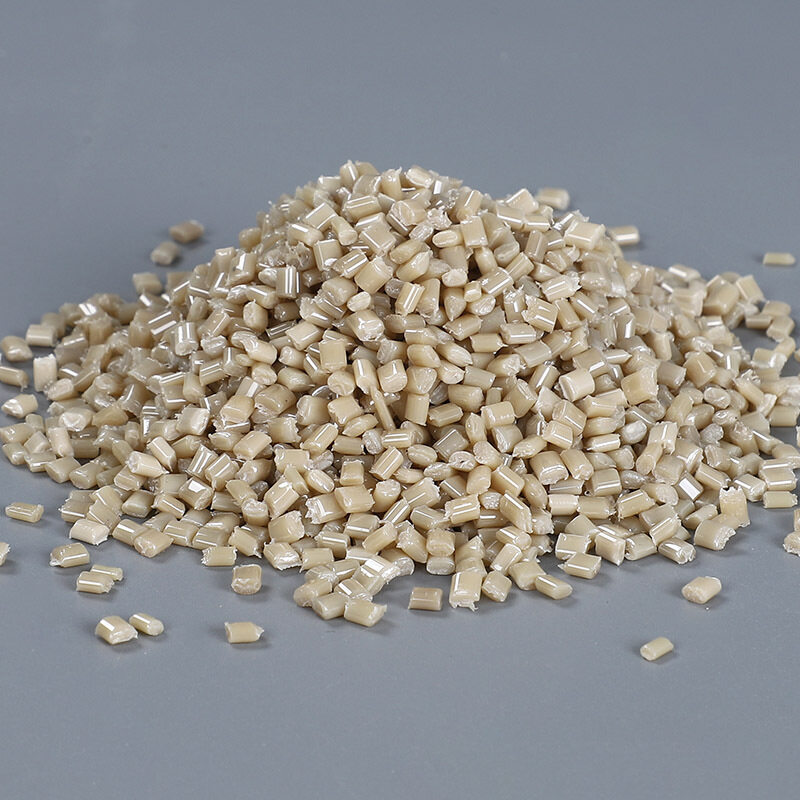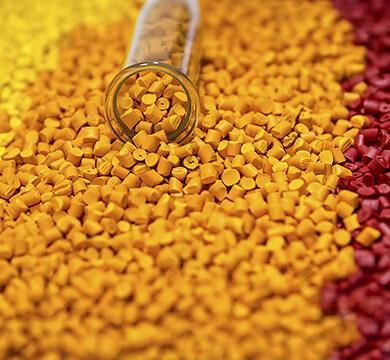Erreur de format d'e-mail
emailCannotEmpty
emailDoesExist
pwdLetterLimtTip
inconsistentPwd
pwdLetterLimtTip
inconsistentPwd

Offer Technical Support and Customized Solutions
The company is committed to creating new and improved plastic materials to meet the evolving demands of the market.

Why Polyphenylene Sulfide (PPS) Plastic Is Termed the 'Golden Plastic’
Welcome to TOPONEW, a leading manufacturer of modified plastic pellets. We specialize in producing modified polyphenylene sulfide (PPS) plastic pellets. PPS engineering modified plastics are often referred to as "plastic gold" due to their exceptional performance. But why is this the case? This article aims to explore the properties and applications of PPS plastic pellets, shedding light on why they are considered invaluable in various industries.
Relationship between PPS Structure and Properties:
- PPS is a linear polymer composed of alternating benzene rings and sulfur atoms, with strong molecular chain regularity, resulting in high crystallinity.
- The main chain, consisting of rigid benzene rings connected by flexible sulfur ether bonds, exhibits a combination of rigidity and flexibility.
- Benzene rings and sulfur atoms are conjugated, and the sulfur atoms are unsaturated. Oxidation can convert the sulfur ether bonds into sulfone and sulfonyl groups, or crosslink adjacent large molecules with oxygen bridges without breaking the main chain. Therefore, PPS exhibits outstanding thermal and oxidative stability, with a maximum continuous use temperature of up to 260°C and a thermal decomposition temperature of up to 522°C.
- The polarity of sulfur atoms is constrained by benzene ring conjugation and high crystallinity, resulting in the overall polymer exhibiting non-polar or weakly polar characteristics. As a result, it demonstrates excellent electrical insulation and chemical resistance.
- Due to its good compatibility with many polymers and additives, PPS can be modified through blending, reinforcement, alloying, etc., to improve its physical and mechanical properties.
PPS can be processed into plastic products through injection molding and extrusion, formed into films through biaxial stretching, and spun into fibers. It can also be used to produce composite materials by filling and reinforcing.
The main properties of PPS are as follows:
Mechanical properties: PPS's tensile strength, flexural strength, etc., are at a moderate level among engineering plastics. Its elongation at break and impact strength are relatively low. Glass fibers, carbon fibers, and inorganic fillers can be added to improve mechanical properties while maintaining heat resistance, flame retardancy, and chemical stability.Excellent heat resistance: PPS has a heat distortion temperature above 260°C and degrades in air at 700°C. It can be used continuously between 200°C and 240°C and remains stable below 400°C in air or nitrogen, with minimal mass loss. It retains 40% of its mass in inert gas at 100°C and maintains mechanical properties at high temperatures.
Good chemical resistance: PPS can resist corrosion from acids, bases, hydrocarbons, ketones, alcohols, esters, chlorinated hydrocarbons, etc. It is insoluble in any known organic solvent below 175°C and only dissolves in chlorinated naphthalene above 175°C.
Electrical properties: PPS has a low dielectric constant, low dielectric loss, and surface and volume resistivity are insensitive to frequency, temperature, and humidity changes. It is an excellent electrical insulating material with long arc resistance time and maintains excellent electrical performance even under high temperature, humidity, and frequency conditions.
Good flame retardancy: The oxygen index of PPS is 46% to 53%. It can burn in flames without dripping and self-extinguish. Its smoke generation rate is lower than that of halogenated polymers, and it can achieve UL 94 V-0 standard without adding flame retardants.
Good dimensional stability: PPS has low molding shrinkage and linear expansion coefficients, with molding shrinkage ranging from 0.15% to 0.30%, and can be as low as 0.01%. It has low water absorption, and its dimensional change when exposed to water for a long time is negligible. Its dimensional change in organic substances is also quite limited. It exhibits good dimensional stability under high temperature or high humidity conditions.
Good adhesion: PPS resin has very high bond strength to glass, aluminum, stainless steel, etc., even greater than the cohesive force of glass. Ultrasonic welding is an excellent bonding method.
Good processability: Although PPS has a high melting temperature, it has low viscosity, good flowability, and rapid crystallization, resulting in short molding cycles.
Good radiation resistance: PPS can withstand doses up to 1×108 Gy, surpassing other engineering plastics, making it widely used in electronics, military, aerospace, etc.
Composite material performance: PPS resin has very low melt viscosity, good flowability, and is highly wettable with various fillers. Resins reinforced with glass fiber or inorganic fillers have high impact resistance, flexural strength, and elongation.
Main Applications of PPS:
PPS has a wide range of applications, primarily in automotive, electronics and electrical, mechanical, military, aerospace, and other special fields. Some examples include:
Mechanical industry: PPS is more durable than stainless steel and more cost-effective in extreme environments. Applications include oil pump components, oilfield drop balls, valve seats and valves, compressor piston rings, gauges, various gear eccentric wheels, nozzles, mechanical seal gaskets, covers, and brackets for various mechanical equipment.
Automotive and transportation: Temperature sensors, carburetors, intake pipes, heater vent brackets, thermostat shell brackets, impellers, pump body pointers, circulating water pump shells, brake caliper brackets, transmission devices, brake locks, flow pumps, fuel pumps, igniters. Also used in rail transportation for fasteners, gaskets, and insulators.
Aerospace, aviation, and military: Components for aerospace aircraft, connectors, pneumatic signal adjustment columns, sensor housings, self-lubricating thrust bearings, engine gears.
PPS fibers: PPS resin is also used to produce high-performance specialty fibers and films, expanding its applications in environmental protection and clean energy fields. Main applications include dust filter bags to reduce emissions in coal-fired power plants, one of the high-value-added applications of PPS.

